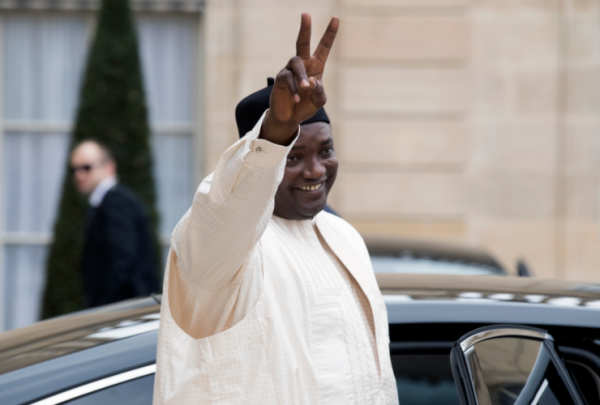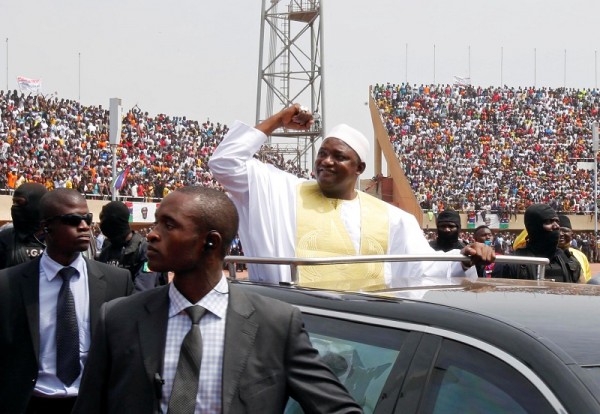Today marks the fifth anniversary of the brutal murder of Deyda Hydara, editor and co-founder of the Point daily newspaper in Gambia. Hydara was fatally shot by unknown attackers on 16 December 2004. The murderers remain at large.
Disturbingly, Gambian President Yahya Jammeh seems uninterested in pursuing the murderers. In June this year, he told reporters that his government “has for long been accused by the international community and so-called human rights organizations for the murder of Deyda Hydara, but we have no stake in this issue.” Referring to the online version of the Point, he added, “And up to now one of these stupid websites carries “Who Killed Deyda Hydara”? Let them go and ask Deyda who killed him.”
When the Gambia Press Union (GPU) issued a statement in response to President Jammeh’s June comments, six journalists including the Point‘s editor-in-chief, Pap Saine, were charged and eventually found guilty of six counts of seditious publication and criminal defamation, and sentenced to two years in prison. They were later pardoned by the president at the start of the holy month of Ramadan. At the time, IPI welcomed their release but noted that the courts should have rejected the case out of hand rather than relying on the “arbitrary mercy” of the president.
In a statement issued today, the GPU remained defiant: “To those who brutally murdered Deyda Hydara, you have failed miserably in your evil design to silence the voice of truth. Your criminal act has in fact turned his voice into a universal voice of truth and a universal voice of condemnation of evil and injustice.”
According to information gathered for the IPI Justice Denied campaign, which highlights this and other cases of impunity, Hydara was killed as he made his way home from work this evening five years ago. The journalist was driving his colleagues Isatou Jagne and Niansarang Jobe home from a celebration of the Point’s 13th anniversary. When they reached Sankung Sillah Street, a man in the passenger seat of a passing car shot at Hydara, who was killed instantly by bullets fired into his head and chest. His colleagues were wounded in the attack: Jagne was hit in the ankle, and Jobe in the knee.
Jagne, who managed to scramble from the car before it landed in a ditch, sought help from police officers at a nearby station. She and her colleague were taken to the police station and, after refusing to issue statements, were brought to a Banjul hospital. They flew to Dakar, Senegal for medical treatment and, fearing for their safety, have since refused to disclose their location.
It is widely believed that Hydara was murdered in connection with his work. In his last published article for the Point, he announced plans to challenge two controversial laws that had been introduced two days earlier: the Criminal Code (Amendment) Bill 2004, which imposes prison sentences for press offences such as defamation and sedition; and the Newspaper (Amendment) Bill 2004, which requires expensive operating licenses and obligates newspaper owners to register their homes as security for the payment of any fines.
The “Green Boys,” an officially disbanded youth group from the radical wing of the ruling Alliance for Patriotic Reorientation and Construction (APRC), are suspected of involvement in the killing. The group was tied to threats made against Alagi Yorro Jallow, founding editor of the Independent, who was forced to flee the country for fear of his life after Hydara’s murder. Hydara had reportedly received an anonymous letter some months before his death, threatening to “teach a very good lesson” to President Jammeh’s critics.
“On this sad anniversary, IPI calls on President Yahya Jammeh to ensure that the murderers of Deyda Hydara are finally pursued and brought to justice,” said IPI Director David Dadge. “The press freedom situation in the Gambia is bleak, but Deyda Hydara remains a symbol for other brave Gambian journalists who try to do their job by reporting the news and revealing the truth.”


